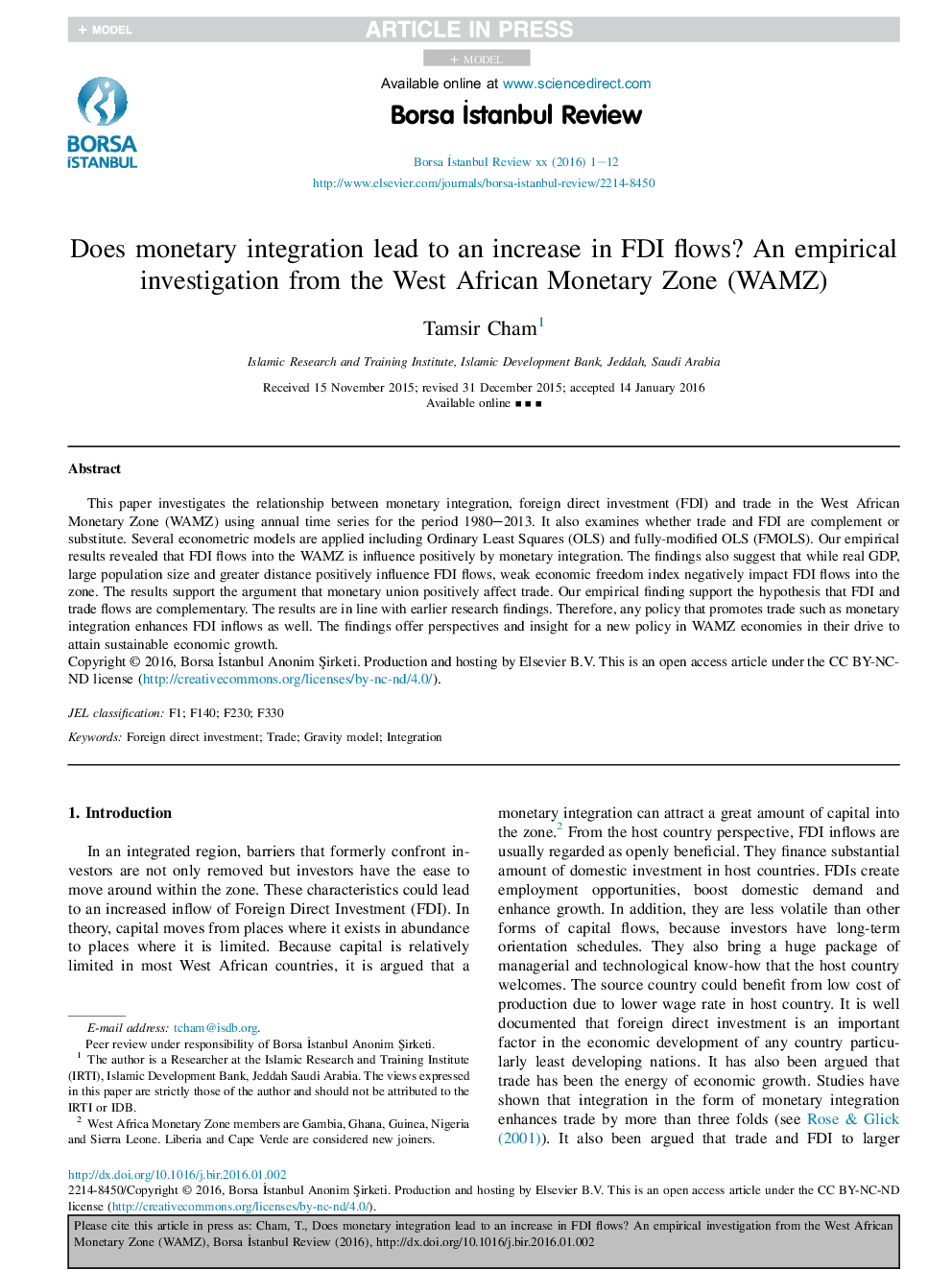| کد مقاله | کد نشریه | سال انتشار | مقاله انگلیسی | نسخه تمام متن |
|---|---|---|---|---|
| 7341897 | 1476186 | 2016 | 12 صفحه PDF | دانلود رایگان |
عنوان انگلیسی مقاله ISI
Does monetary integration lead to an increase in FDI flows? An empirical investigation from the West African Monetary Zone (WAMZ)
دانلود مقاله + سفارش ترجمه
دانلود مقاله ISI انگلیسی
رایگان برای ایرانیان
کلمات کلیدی
موضوعات مرتبط
علوم انسانی و اجتماعی
اقتصاد، اقتصادسنجی و امور مالی
اقتصاد و اقتصادسنجی
پیش نمایش صفحه اول مقاله

چکیده انگلیسی
This paper investigates the relationship between monetary integration, foreign direct investment (FDI) and trade in the West African Monetary Zone (WAMZ) using annual time series for the period 1980-2013. It also examines whether trade and FDI are complement or substitute. Several econometric models are applied including Ordinary Least Squares (OLS) and fully-modified OLS (FMOLS). Our empirical results revealed that FDI flows into the WAMZ is influence positively by monetary integration. The findings also suggest that while real GDP, large population size and greater distance positively influence FDI flows, weak economic freedom index negatively impact FDI flows into the zone. The results support the argument that monetary union positively affect trade. Our empirical finding support the hypothesis that FDI and trade flows are complementary. The results are in line with earlier research findings. Therefore, any policy that promotes trade such as monetary integration enhances FDI inflows as well. The findings offer perspectives and insight for a new policy in WAMZ economies in their drive to attain sustainable economic growth.
ناشر
Database: Elsevier - ScienceDirect (ساینس دایرکت)
Journal: Borsa Istanbul Review - Volume 16, Issue 1, March 2016, Pages 9-20
Journal: Borsa Istanbul Review - Volume 16, Issue 1, March 2016, Pages 9-20
نویسندگان
Tamsir Cham,